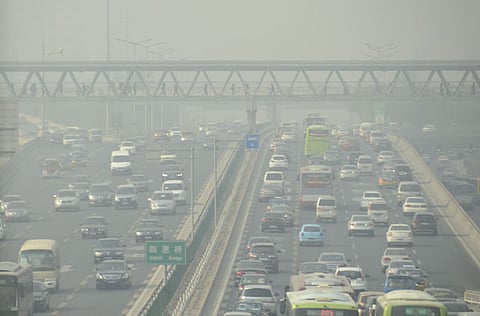Air pollution can damage your kidneys: Study
People with diabetes, obesity, high blood pressure or heart disease are at an increased risk

New York: Polluted air increases the risk of chronic kidney disease (CKD), which occurs when a person's kidneys are damaged, or cannot filter blood properly, researchers have found.
The study highlighted that people with diabetes, obesity, high blood pressure or heart disease are at an increased risk of developing CKD.
Apart from PM2.5, air pollution also contains heavy metals such as lead, mercury and cadmium -- all of which are known to negatively affect the kidneys.
Researchers from the University of Michigan in the US, warn high risk patients who live in heavily populated areas to recognise the danger and take precautions.
"Similar to smoking, air pollution contains harmful toxins that can directly affect the kidneys," said lead author Jennifer Bragg-Gresham, from the varsity.
"Kidneys have a large volume of blood flowing through them, and if anything harms the circulatory system, the kidneys will be the first to sense those effects," she added.
Previous studies have shown that polluted air increases the risk of respiratory problems such as asthma, organ inflammation, worsening of diabetes and other life-threatening conditions.
Also read
The new study, published in the journal PLOS ONE, examined several prior studies on the issue.
Looking at areas that are heavily polluted versus areas that are less polluted, you will find more chronic kidney diseases in the heavily polluted areas, said co-author Rajiv Saran, nephrologist at the varsity.
"In heavily polluted areas, consider wearing masks that cover your nose and mouth, limit hours outside and limit long hours commuting to work in high traffic as well," cautioned Saran, adding that the risk should be taken seriously.
Sign up for the Daily Briefing
Get the latest news and updates straight to your inbox



